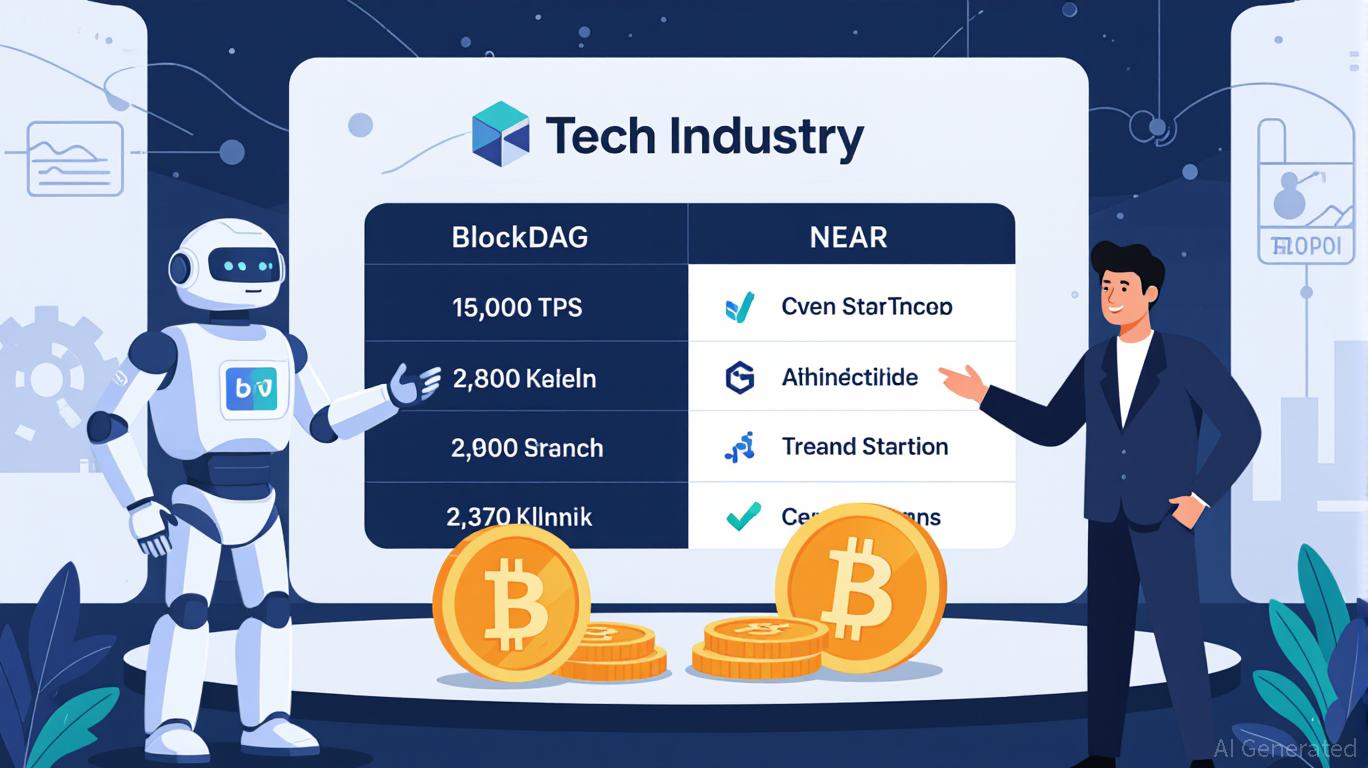News
Stay up to date on the latest crypto trends with our expert, in-depth coverage.

- Ripple acquires Rail for $200M to expand B2B stablecoin payments, handling 10% of global flows via 12 banking partners. - XRP-powered ODL processes $1.3T in Q2 2025, offering 90% cost savings over SWIFT with sub-5-second settlements. - SEC reclassifies XRP as a commodity in August 2025, spurring $1.2B ETF inflows and institutional adoption like Gumi's $17M allocation. - RLUSD integrates with DeFi platforms and challenges USDC, while analysts project XRP could capture 14% of SWIFT's volume by 2030. - Ripp

- Hong Kong’s 2025 Stablecoins Ordinance and academic research establish it as a global leader in crypto legitimacy, attracting institutional investment. - Regulations mandate 100% reserve-backed stablecoins and expanded SFC licensing, enhancing investor trust and market stability. - Academic validation and initiatives like tokenized green bonds and Bitcoin tuition payments reinforce Hong Kong’s role as a bridge between China and global crypto markets. - Institutional capital surged to $2.4B in 2024, with

- Bitcoin fell below multiyear trendline support in late August 2025, sparking debates over bear market risks or temporary correction. - Analysts highlight historical parallels with 2013-2021 crashes when parabolic and RSI support levels are breached, but some argue this could be a "fakeout" before a rebound. - The $80,000–$100,000 range is critical for determining BTC's trajectory, with RSI remaining above trendline suggesting bullish momentum isn't exhausted. - SuperBro predicts potential $280,000 all-ti

- CITY cryptocurrency plummeted 441.73% in 1 month amid weakened adoption and speculative trading. - Sharp 1-year decline of 4573.11% highlights fragile fundamentals and ecosystem pressures. - Technical indicators show bearish momentum with RSI in oversold territory and MA crossovers. - Backtest analysis explored exit strategies using moving averages and RSI thresholds to mitigate losses.

- Bitcoin faces "Red September" volatility risks as historical seasonality, Fed policy uncertainty, and fragile market psychology converge. - 2025's $50B ETF inflows and institutional adoption may weaken historical patterns but cannot fully counter psychological selling pressures. - Fed's September rate decision (75% cut expected) and Bitcoin's $110K support level will determine short-term direction amid mixed institutional/retail sentiment. - Strategic risk management recommends 50-70% position reduction,

- Ethereum whales are shifting funds to MAGACOIN Finance, a presale project with deflationary mechanics and institutional-grade security audits. - Dual audits by CertiK and HashEx, plus a 12% transaction burn rate, drive whale confidence in the project's Ethereum-based infrastructure and scarcity model. - $1.4B in whale inflows and 420% Q3 growth signal strategic positioning, with analysts projecting up to 18,000% returns if exchange listings succeed. - Whale accumulation patterns highlight a market shift

- 2025 crypto trends highlight NEAR's institutional upgrades, Solana's TradFi partnerships, and BlockDAG's presale-driven growth. - NEAR's Nightshade 2.0 (100k TPS) and Solana's Alpenglow (65k+ TPS) enable cross-chain and real-time financial infrastructure adoption. - BlockDAG's $387M presale (15k TPS) outpaces rivals, offering 2,900% ROI potential through decentralized DAG-PoW architecture. - Institutional traction (Everclear, R3) and grassroots adoption (2.5M miners) differentiate these projects' market

- Stellar (XLM) faces bearish momentum near $0.359, with key support levels at risk after rejecting the daily FVG zone. - Analyst Crypto Patel highlights liquidity sweeps (BSL/SSL) weakening upward momentum, favoring a $0.3251 target over a $0.3712 reversal threshold. - A confirmed market structure shift (MSS) could trigger a continuation decline, while breaking $0.3712 would invalidate the bearish scenario. - Traders are advised to monitor $0.3251 liquidity zones and $0.3712 critical level amid reduced im

- Everlyn, an on-chain video AI model, secured $15M in funding led by MystenLabs to advance blockchain-AI integration. - MystenLabs partners with Alibaba Cloud to launch AI-assisted Move coding tools and global developer programs, lowering blockchain entry barriers. - The collaboration includes cloud infrastructure support, multilingual documentation, and hackathons to expand Sui's developer ecosystem. - MystenLabs' Walrus Protocol introduces cost-effective decentralized storage with Sui integration, enhan
- 00:43Xincheng Development agrees to issue shares to raise approximately HKD 50 million for the RWA sectorJinse Finance reported that Xincheng Group announced on the Hong Kong Stock Exchange that the company has agreed to issue approximately 19 million shares to Blockchain Metaverse Academy at a price of HK$2.5845 per share. The subscribed shares account for about 0.27% of the enlarged issued share capital; the subscription price represents a premium of approximately 4.2% over the closing price of HK$2.48; the total proceeds amount to approximately HK$50 million. The funds raised will be used for strategic deployment in the field of Real World Asset (RWA) applications. (Golden Ten Data)
- 00:43Solana's new consensus protocol Alpenglow proposal SIMD-0326 has been approved by voteJinse Finance reported that Solana's new consensus protocol Alpenglow proposal SIMD-0326 has reached quorum and was approved with 99.6% of votes in favor. The proposal aims to reduce block confirmation time from 12.8 seconds to 150 milliseconds.
- 00:32Swedish municipalities freeze 1.5 BTC due to cyberattack targeting IT systems provider MiljödataChainCatcher news, according to Protos, Swedish municipal governments have frozen 1.5 BTC (approximately $170,000) due to a cyberattack. The attack targeted Swedish IT systems provider Miljödata with ransomware, with hackers demanding a ransom in exchange for not leaking sensitive information. National broadcaster STV reported that the attack was discovered on Saturday, but efforts to assess the scope of the impact have been hampered because the affected computers were heavily encrypted. In this incident, 80% of Swedish cities rely on Miljödata, and it is expected that a total of 200 municipal and regional services are unavailable. Affected institutions include educational organizations and some private entities. Swedish Minister for Civil Defense Carl-Oskar Bohlin emphasized the importance of cybersecurity and indicated that a new cybersecurity bill would be drafted to raise security requirements for organizations.